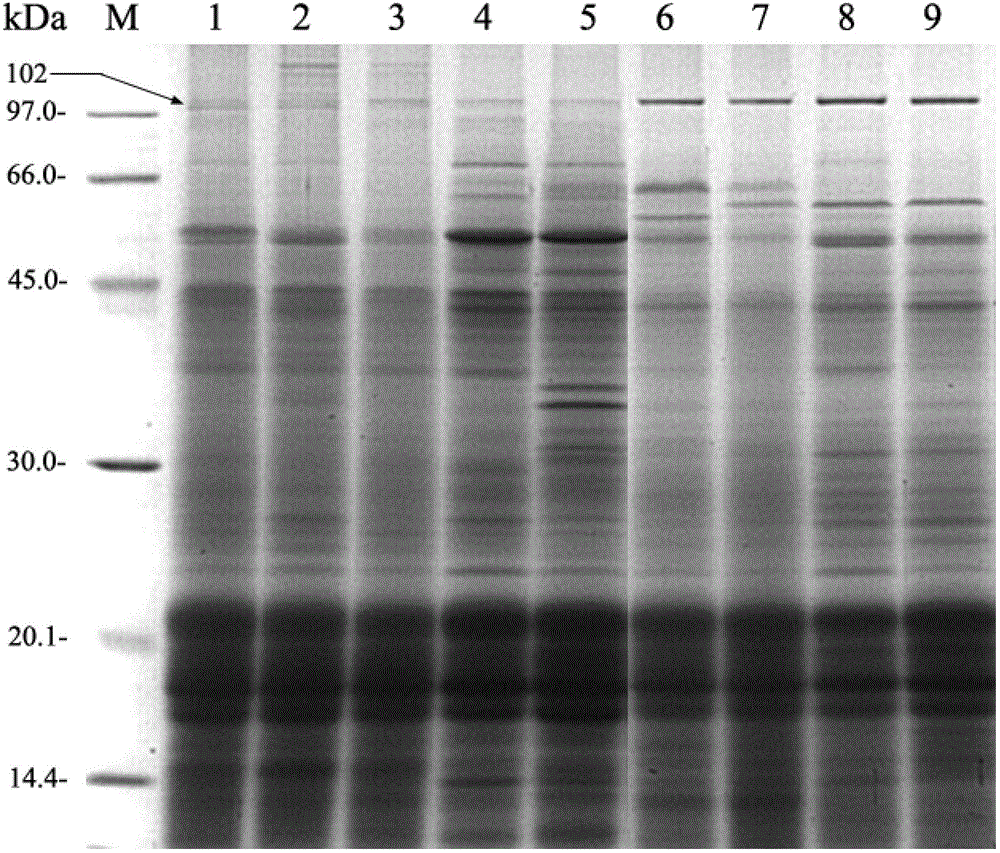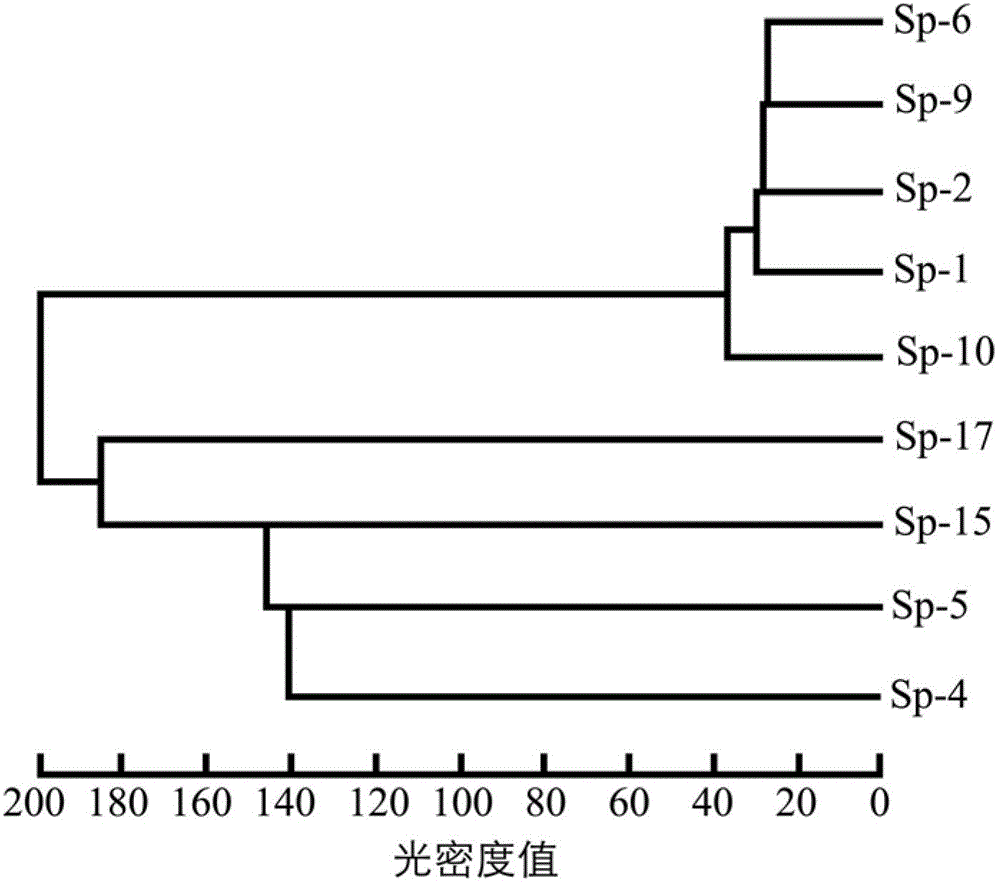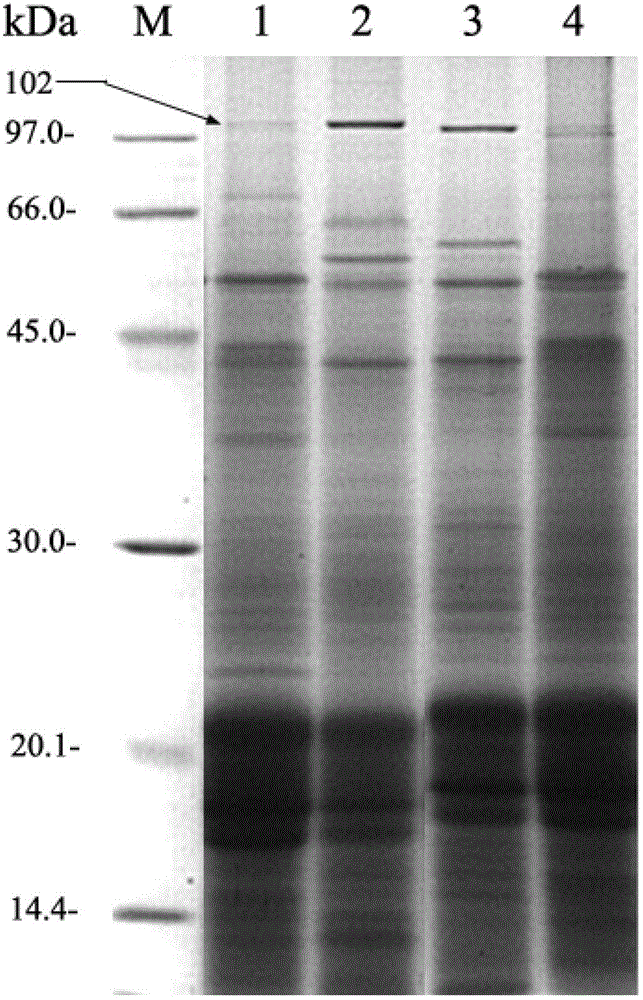Method for distinguishing degree of production traits of spirulina strain
A technology for producing traits and spirulina, which is applied in the direction of analyzing materials, analyzing materials through optical means, measuring devices, etc., can solve the problems of high cost, cumbersome procedures, and long cycle, and achieve the effect of low cost
- Summary
- Abstract
- Description
- Claims
- Application Information
AI Technical Summary
Problems solved by technology
Method used
Image
Examples
Embodiment Construction
[0022] Sodium dodecylsulfonate-polyacrylamide gel electrophoresis (SDS-PAGE) technology of protein has been widely used in the classification and identification of tobacco, rice, woody plants and seaweed, etc. However, there are few reports on the application of SDS-PAGE fingerprints and related analysis methods in classification and identification. The invention establishes a new method for detecting the optical density value of the band at 102kD in the protein fingerprint, and identifying the excellent production properties of spirulina and whether it can be applied to large-scale production and breeding through clustering.
[0023] We used 9 well-known strains of Spirulina Sp-1, Sp-2, Sp-4, Sp-5, Sp-6, Sp-9, Sp-10, Sp-15 and Sp-17 as control materials. SDS-PAGE and Quantity One software were used to detect the size of the optical density value of the protein band at 102kD in the protein electrophoresis spectrum, and cluster analysis was performed according to its size. It w...
PUM
 Login to View More
Login to View More Abstract
Description
Claims
Application Information
 Login to View More
Login to View More - R&D
- Intellectual Property
- Life Sciences
- Materials
- Tech Scout
- Unparalleled Data Quality
- Higher Quality Content
- 60% Fewer Hallucinations
Browse by: Latest US Patents, China's latest patents, Technical Efficacy Thesaurus, Application Domain, Technology Topic, Popular Technical Reports.
© 2025 PatSnap. All rights reserved.Legal|Privacy policy|Modern Slavery Act Transparency Statement|Sitemap|About US| Contact US: help@patsnap.com



